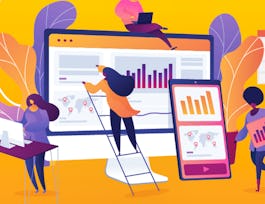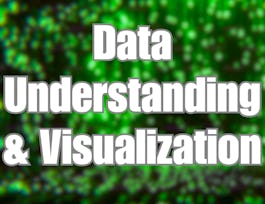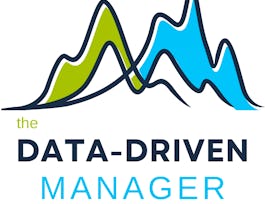This is the third of seven courses in the Google Advanced Data Analytics Certificate. In this course, you’ll learn how to find the story within data and tell that story in a compelling way. You'll discover how data professionals use storytelling to better understand their data and communicate key insights to teammates and stakeholders. You'll also practice exploratory data analysis and learn how to create effective data visualizations.



Go Beyond the Numbers: Translate Data into Insights
This course is part of Google Advanced Data Analytics Professional Certificate

Instructor: Google Career Certificates
Top Instructor
Sponsored by EmployNV
59,734 already enrolled
(699 reviews)
What you'll learn
Apply the exploratory data analysis (EDA) process
Explore the benefits of structuring and cleaning data
Investigate raw data using Python
Create data visualizations using Tableau
Details to know

Add to your LinkedIn profile
20 quizzes, 1 assignment
See how employees at top companies are mastering in-demand skills

Build your Data Analysis expertise
- Learn new concepts from industry experts
- Gain a foundational understanding of a subject or tool
- Develop job-relevant skills with hands-on projects
- Earn a shareable career certificate from Google


Earn a career certificate
Add this credential to your LinkedIn profile, resume, or CV
Share it on social media and in your performance review

There are 5 modules in this course
You’ll learn how to find the stories within data and share them with your audience. You’ll learn about the methods and benefits of data cleaning and how it can help you discover those stories. You’ll also go over the steps of the EDA process and learn how EDA can help you quickly understand data. Finally, you'll explore different ways to visualize data to communicate key insights.
What's included
8 videos5 readings2 quizzes1 assignment1 plugin
Finding stories in data using EDA is all about organizing and interpreting raw data. Python can help you do this quickly and effectively. You’ll learn how to use Python to perform the EDA practices of discovering and sculpting.
What's included
9 videos6 readings4 quizzes7 ungraded labs1 plugin
You’ll explore three more EDA practices: cleaning, joining, and validating. You'll discover the importance of these practices for data analysis, and you’ll use Python to clean, validate, and join data.
What's included
11 videos6 readings5 quizzes5 ungraded labs1 plugin
You’ll practice creating and presenting data stories in an ethical, accessible, and professional way. You'll also explore advanced data visualization techniques in Tableau.
What's included
8 videos11 readings5 quizzes1 plugin
In this end-of-course project, you’ll practice using Python to perform EDA on a workplace scenario dataset. Then, you'll use Python and Tableau to visualize the data.
What's included
4 videos10 readings4 quizzes6 ungraded labs
Instructor

Offered by
Why people choose Coursera for their career




Learner reviews
699 reviews
- 5 stars
82.26%
- 4 stars
13.16%
- 3 stars
2.14%
- 2 stars
1.28%
- 1 star
1.14%
Showing 3 of 699
Reviewed on Aug 22, 2023
Very Helpful Course! The storytell methods described are really helpful to me. I have always had an issue with getting my point across but now I know where my problem was and have corrected it.
Reviewed on Feb 9, 2024
This is a safe pathway down python. Everything is made easy to understand. Thanks Google
Reviewed on Feb 6, 2024
I’m so grateful for the excellence, well crafted and clearly delivered career-oriented course you have offered.
Recommended if you're interested in Data Science

University of Michigan

University of Colorado Boulder

Tableau Learning Partner

University of Colorado Boulder

Open new doors with Coursera Plus
Unlimited access to 10,000+ world-class courses, hands-on projects, and job-ready certificate programs - all included in your subscription
Advance your career with an online degree
Earn a degree from world-class universities - 100% online
Join over 3,400 global companies that choose Coursera for Business
Upskill your employees to excel in the digital economy


